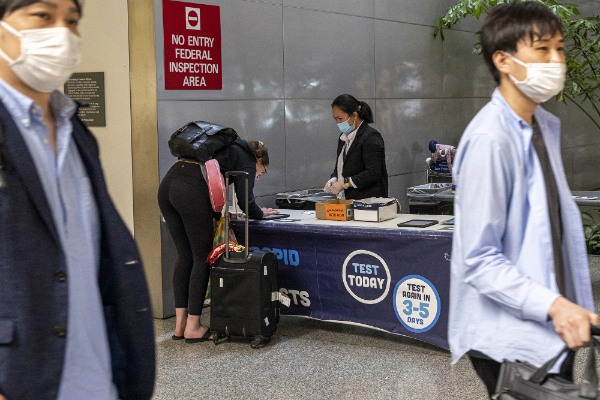The U.S. Centers for Disease Control and Prevention (CDC) has announced a new measure for travelers from China, Hong Kong and Macau, requiring them to present a negative COVID-19 test before being allowed to enter the U.S.
The rule will go into effect on January 5, 2021, and applies to all passengers over the age of two. The test must be a PCR or monitored antigen test, which must be overseen by a telehealth service or a licensed provider authorized by the U.S. Food and Drug Administration. It must also be taken no more than two days before the traveler’s departure, regardless of whether they are taking a direct flight or an indirect one through another country.
The requirement is being implemented as the U.S. relaxes restrictions and COVID-19 cases surge in China.
The US Centers for Disease Control and Prevention (CDC) has raised concerns about the surge in COVID-19 cases in China, citing the lack of adequate and transparent epidemiological and viral genomic sequence data being reported from the country. The CDC noted the rise in cases and the limited information available, expressing their worries about the current situation.
“Reduced testing and case reporting in (China) and minimal sharing of viral genomic sequence data could delay the identification of new variants of concern if they arise,” the CDC said.
The Centers for Disease Control and Prevention (CDC) has announced that all passengers travelling from China, Hong Kong or Macau to Incheon International Airport in South Korea, Toronto Pearson International, or Vancouver International must provide a negative COVID-19 test.
The rule applies to passengers who have been in China in the last 10 days. The CDC stated that these airports cover “the overwhelming majority of passengers with travel originating in the PRC and Special Administrative Regions”. Those who tested positive more than 10 days before the flight must provide documentation of recovery from the virus instead.
The decision follows China’s removal of its quarantine requirements for international passengers as of January 8.
China is facing a massive COVID surge, with officials warning that up to 800 million people could be infected in the coming months. The surge follows protests across the country in November, which prompted the government to roll back some of its zero-COVID policies.
Meanwhile, the U.S. is expanding its voluntary genomic testing program (TGS) to seven airports, including Seattle-Tacoma International Airport and Los Angeles International. The program collects anonymous nasal swabs from arriving international travelers to detect new and rare COVID variants.
“During the initial weeks of the Omicron surge, TGS detected two Omicron subvariants, BA.2 and BA.3, and reported them to the global database weeks before they were reported elsewhere, demonstrating that the program is able to detect variants early,” the CDC said.

